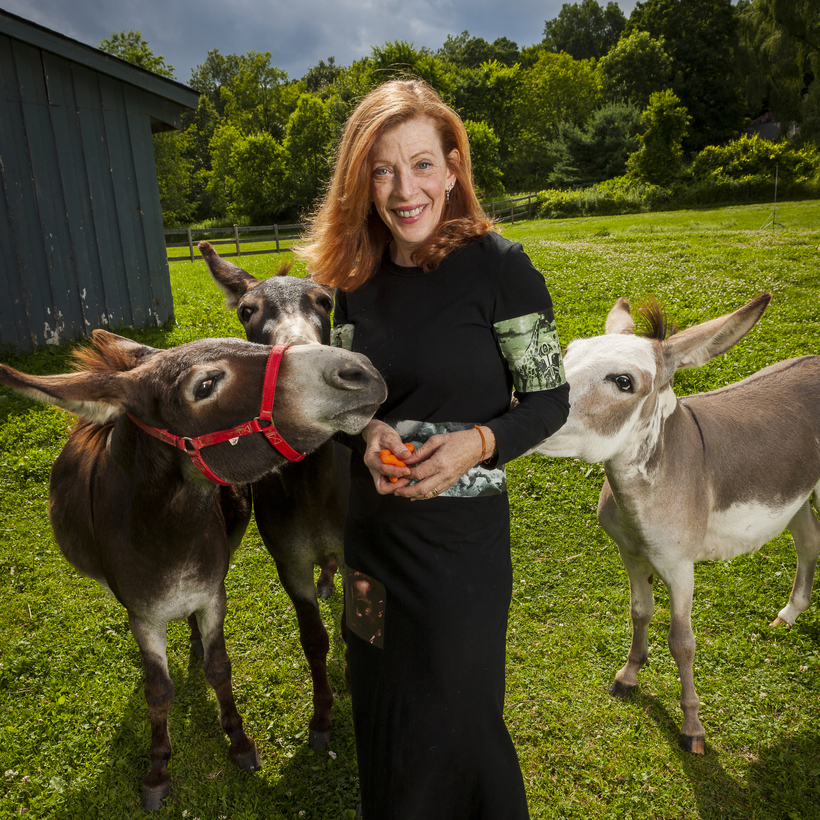Why is it that Susan Orlean could write about a traffic stop and make it compelling? No matter what topic captures Orlean’s interest—orchid thieves in Florida, Rin Tin Tin, a library fire in Los Angeles, a three-sister band called the Shaggs—her eye for detail, sense of humor, and affection for her subject entrances the reader and makes you suddenly as curious as she is about the matter at hand. In her latest book, On Animals, Orlean indulges her interest in both the exotic and the domesticated creatures among us, and so inviting is her prose that by the end of the book the reader can’t decide whether to raise chickens or free whales.
JIM KELLY: In your new collection, you explain how your fondness for all sorts of animals began at any early age, and included taking care of a gift mouse named Sparky. You made fake ribbons and trophies for her and told folks she had won them at championship mouse shows. Did anyone believe you? And, perhaps more to the point, how concerned were your parents?

